Inside: Here are helpful ideas on how to take oral and video histories of family members. Topics, tips & tricks, questions to ask, and more to make it a successful experience!
The Importance of Taking Take Oral and Video Histories
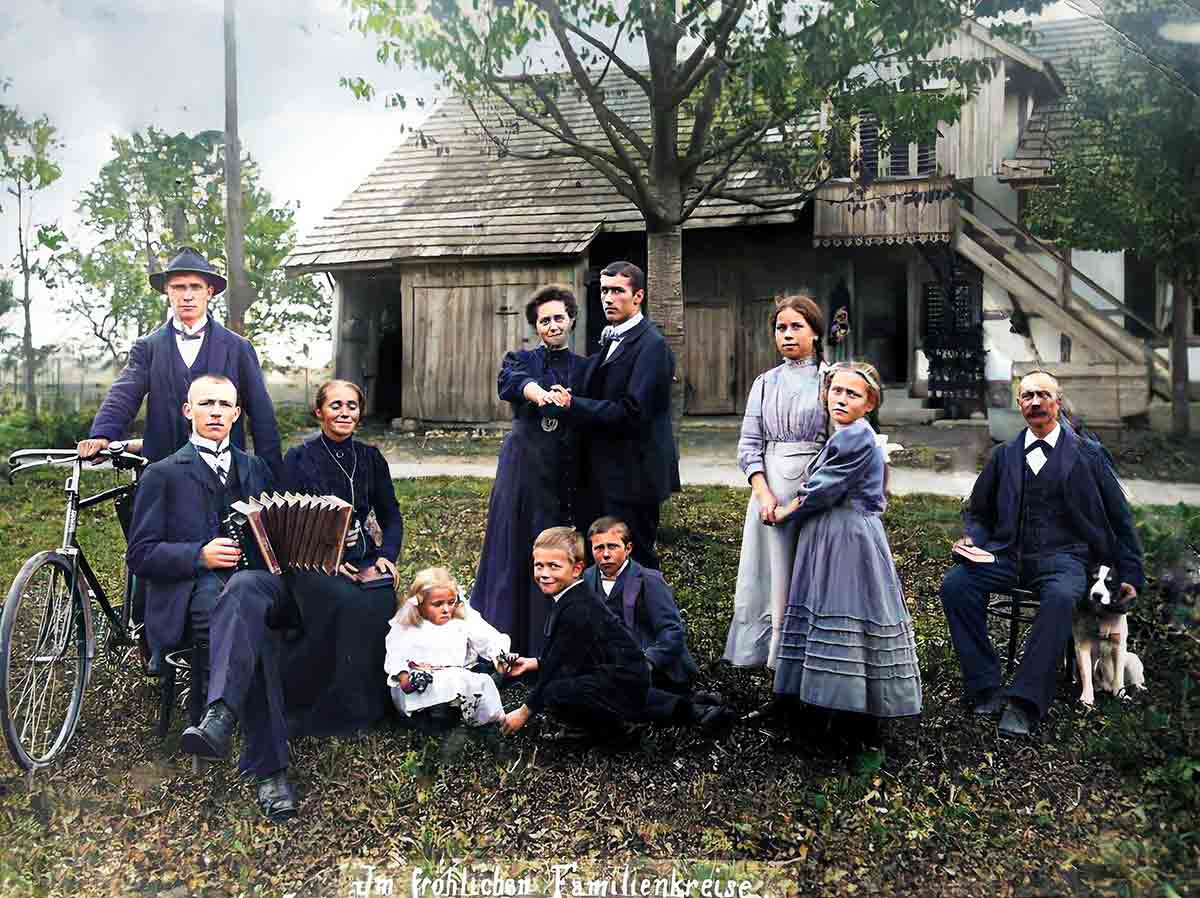
This is one of my favorite ancestor pictures because it tells their history. They liked to ride bikes, play musical instruments, read, and play games and they had pets! So much history in one photograph!
I believe that in each of us, there is a small piece of history. (Svetlana Alexievich)
How much would it be worth to you to have the voices or videotapes of your parents, grandparents, or other ancestors? To listen and/or watch as they tell their stories for all posterity?
Some things can’t be valued with a price tag, but having voices and faces from the past is priceless!
It’s important to remember that when an ancestor dies, a library is lost and volumes of wisdom and knowledge are gone. Taking oral or video histories is a way of preserving the wisdom of your ancestors!
Our children took an oral and video history of me and my husband. I have a cassette with an oral history I took of my father in 1982 and my husband has oral histories he took of his parents and grandparents in the 70s and 80s.
Each is a priceless history of people who have passed. There’s a measure of comfort to hear their voices on tape as we listen to their stories. In some ways, these unique histories have become more memorable than their photographs.
This post is to help you learn how to take fun and engaging oral and video histories that someday will be valued beyond measure for you, your family, and posterity.
At What Age Do You Take Oral and Video Histories
The most practical advice on taking oral or video histories is to talk to your family members while their memories are intact. We don’t know the health challenges that may rob our family members of their memories and since it’s better to be “safe than sorry,” interview them early rather than later.
You can also take oral and video histories at different times in a person’s life because memorable events happen all the time.
I took my first recorded oral history of my dad when he was 64. He was very lucid and had lots of fun telling me about his life. My father died in 2013 at the age of 95 after living a rich, full, and challenging life. I love listening to his voice and remembering what an amazing person he was.
How to Take Successful Oral and Video Histories
Here are some important tips and tricks when taking oral and video histories of family members.
Tips, Tricks, and Things You Need
- If you are taking a video history, you will need a camera, a tripod, or a cellphone.
- When taking an oral history, you need a cellphone or computer to record their voice
- Purchase a good quality microphone to pick up the person’s voice.
- If you’re using a video camera, mount it on a tripod so the picture remains stable.
- Test the camera, microphone, and lighting before starting—this is extremely important!
- Check everyone’s voice. Emphasize to the person you are interviewing to speak normally (not too loud or too soft) and to enunciate their words clearly and slowly.
- Have the interviewee sit in a comfortable chair and if you are videotaping, they need to have good lighting on her/him.
- Plan on doing the interview in 20–30-minute segments. People get tired and when they get tired, they have a difficult time remembering things.
- Ask engaging questions or show photos to stir memories (see below)
Questions and Topics for Oral and Video Histories
Engage the person you are interviewing by asking fun and interesting questions to trigger his/her memories.
Showing them photos is a powerful way to activate memories
Once you ask a question, let the person go in the direction they want. One question can trigger lots of memories. When they finish answering the question, go to the next question, and so on.
It does NOT have to be in chronological order—the purpose is to get the person to talk and remember.
If you’re like me and appreciate organization, you may want to ask questions that are divided by life periods such as:
- Early childhood (ages birth-12 years old)
- The teen years (12-18 years old)
- School years
- Adult years—that includes college, trade school, marriage
- Later adult years
- Retirement
To divide these into more specific topics, here are some ideas. This is NOT a complete list! Use it as a springboard.
Childhood & Homelife
- Where were they born?
- Their physical characteristics—the color of their hair, height, what they looked like, etc. Any facial characteristics they didn’t like? Or that they loved?
- Where did they live and grow up? Are there any pictures of the homes they lived in?
- What do they remember about their home life?
- What do they remember about their parents and grandparents? What were their vocations?
- How many siblings did they have—their names?
- Associations with family members today
- What was the atmosphere in their home? Affection in the home; discipline, laws of expectation, etc.
- The neighborhood they lived in; friends they had; games played in the neighborhood
- Homes they lived in—do you have pictures or addresses of the homes they lived in?
- Schools they attended; favorite subjects in school, friends remembered
- The games and toys they played with; movies they saw, etc.
- Pets? What kinds and their names?
- Any dangerous experiences as a child or teen?
- Family vacations—where they went, memories of what they did; favorite vacations
Religion
- Churches, synagogues, or mosques attended
- Religious activities they participated in—choir, bible school, Sunday school teacher, etc.
- Their struggles and doubts regarding religion
- Current religious affiliations and feelings about religion in general
- Memorable church leaders, pastors, priests, bishops, rabbis, etc.
- Basic values and beliefs of the family and extended family
- Family religious practices—blessing the food, daily prayers, scripture reading, etc.
- What would they tell their posterity concerning their beliefs in God, etc.?
Health
- Their health—childhood diseases, accidents, immunizations, etc.
- Experience any pandemics? Spanish flu? Polio? Covid?
- The health of their parents, and grandparents.
- Did they see doctors regularly? Dentists?
- Any physical handicaps? Ones they overcame?
- Eyesight—did they wear glasses? Contact lenses?
- Eating habits—did their eating habits contribute to their health or illnesses?
- Did they participate in physical fitness activities—hiking, biking, walking, etc?
College & Vocations
- Did they go to college? Trade school? Military? Any higher education? If so, when and where, and what subjects did they major in?
- Vocations? Where did they work? What job did they do? What work did they like best?
- Achievements and recognitions in college or at work, etc.
- If they had to do it over again, would they go into the same line of work or something different?
Courtship, Marriage, Family, and Children
- How old were they when they started dating?
- Who were some of the people they “liked?”
- Any serious relationships or “heartbreaks?”
- Where did they meet their spouse? What attracted them to their spouse?
- Engagement and marriage memories?
- How old were they when they got married?
- Where did they get married? Did they have any celebrations attached to their marriage—like a reception, etc.?
- Did they go on a honeymoon? Where?
- Their first home—where was it, how big?
- First neighborhood—any special people or friends they remember from the neighborhood?
- How many children did they have? How many boys/girls? Their names, ages, etc.
World Events & Natural Disasters
- Happenings in the world—as a child, teen, adult
- Were they involved in any wars? What were their feelings about their participation?
- What was the political climate when they were born and growing up?
- Did they experience any earthquakes, hurricanes, tornados, or other natural events?
Community Service
- Was their family involved with community service? Helping others, taking in meals to shut-ins, etc.
- Did their family support the community? In what ways?
- Favorite charities they supported?
Hobbies, Interests & Talents
- What were some of his/her hobbies?
- Talk about their talents—how they developed them; if they took lessons, and what they did with their talents.
- Did they have a wide variety of interests? Such as reading, outdoors (hiking, walking, etc.), building things, baking and cooking, handiwork, sewing, quilting, art, cars, sports, etc.
- What hobbies, interests, or talents did they excel at?
- Did they enjoy traveling? Where did they travel to? What did they experience in their travels?
Favorite Foods
- Growing up—what were his/her favorite foods?
- Did they enjoy cooking and baking? Have they kept recipes from their childhood or adulthood?
- What were their family’s favorite foods?
- Any foods they hated or disliked?
- Did their family have a set time for meals or was it rather carefree?
- Throughout his/her life—did they ever have to diet?
- Grocery shopping—who did it in the family and why?
- Did their family plant a garden to subsidize their grocery bill?
- What special foods did they fix for various holidays, picnics, or other traditions?
Counsel to Your Posterity
All these topics help you to get to know your family members and recall events from their lives.
However, this last topic—is very important. It gives your family member the chance to express some of their deepest concerns and leave their best advice to their posterity.
Ask them:
- What counsel would you give to your posterity and why?
- Does your counsel focus on beliefs, education, family, spouses, or something else?
- What is the most important thing you want your posterity to remember about you?
- Anything else you want to add?
Have you ever taken an oral or video history of a family member? What were your experiences? Anything you would change? What is the best memory you have of taking an oral or video history of a close family member? Please comment in the section below.
Other posts about ancestors:

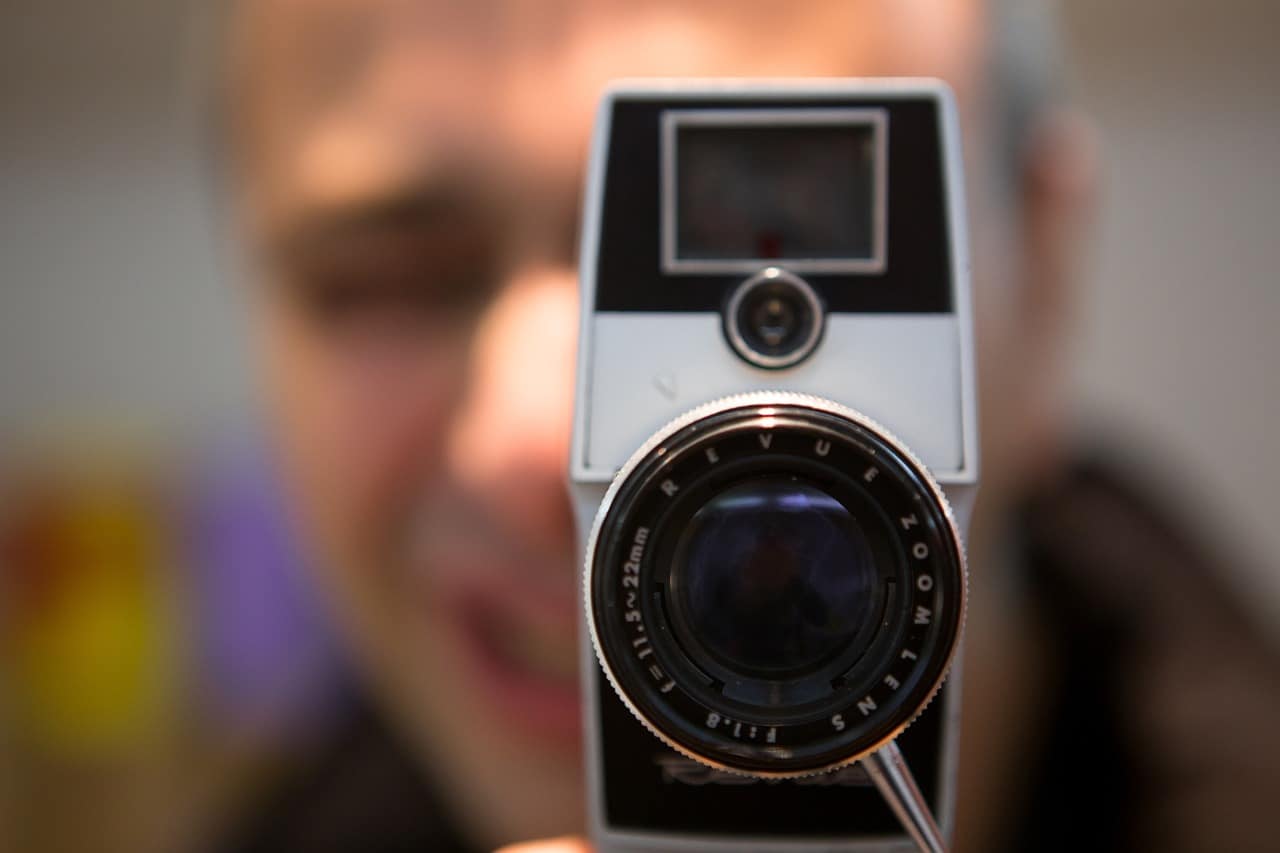
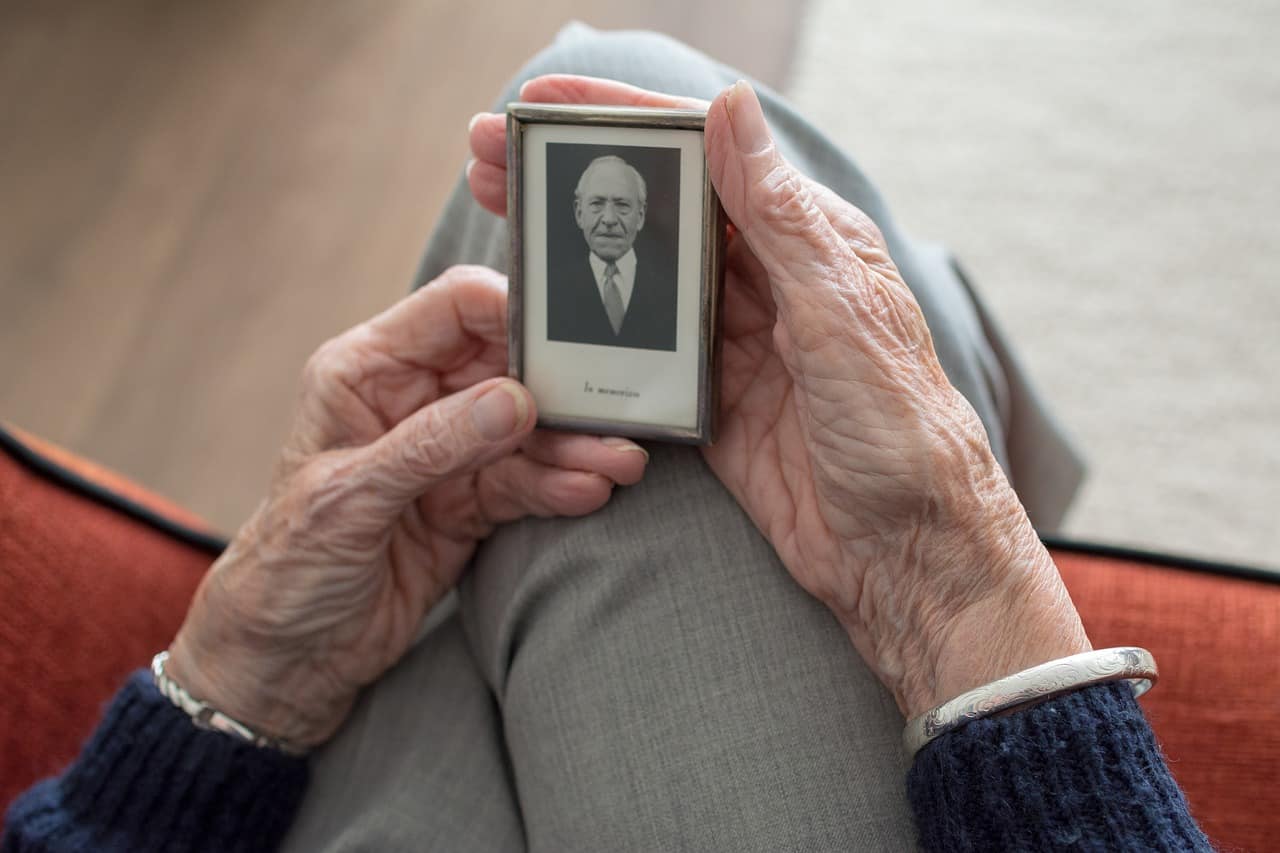
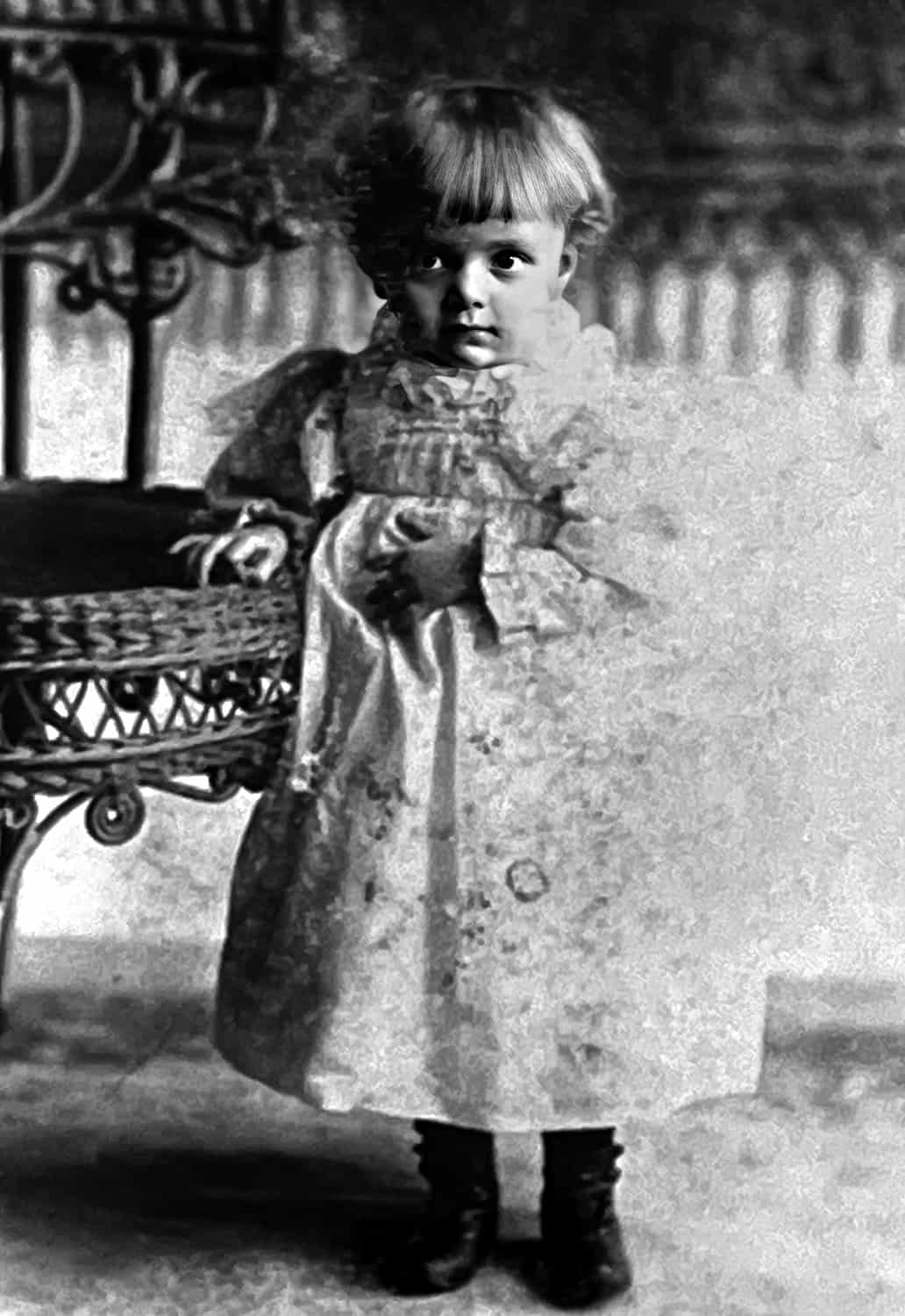
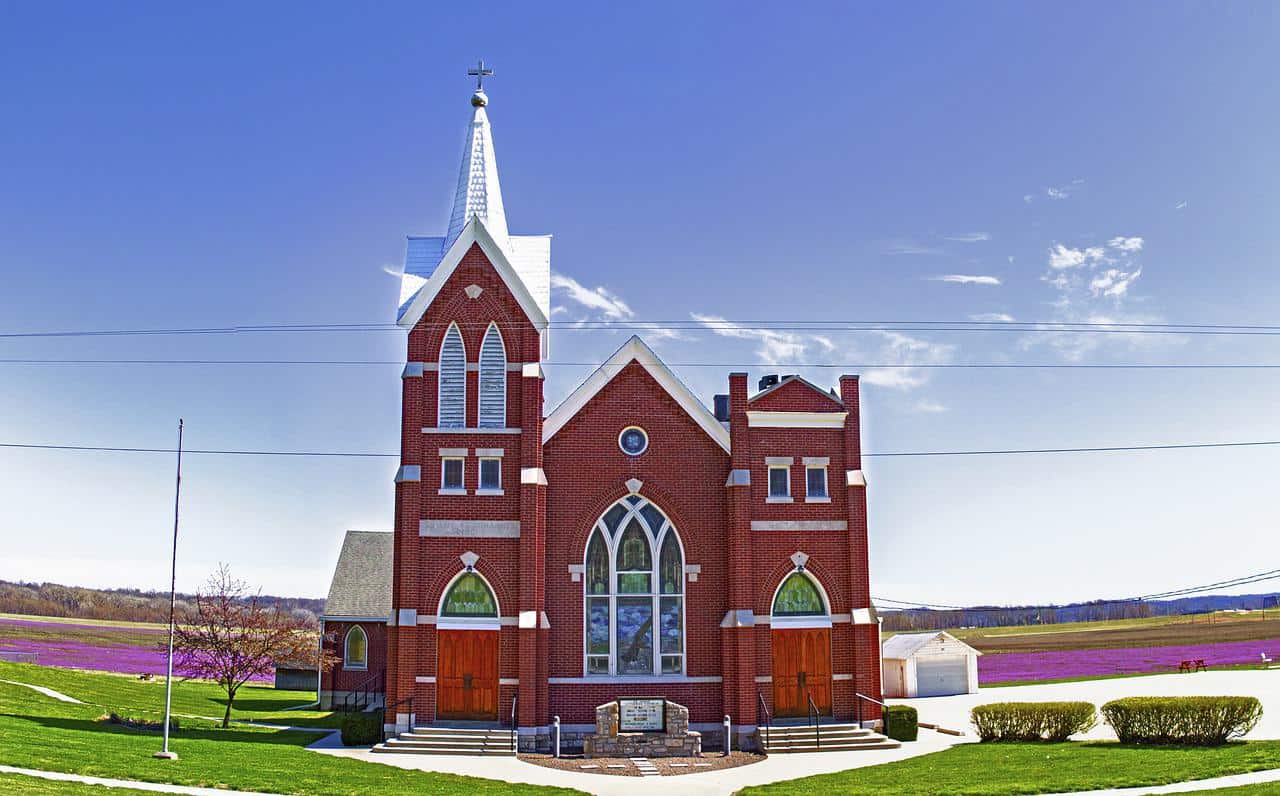
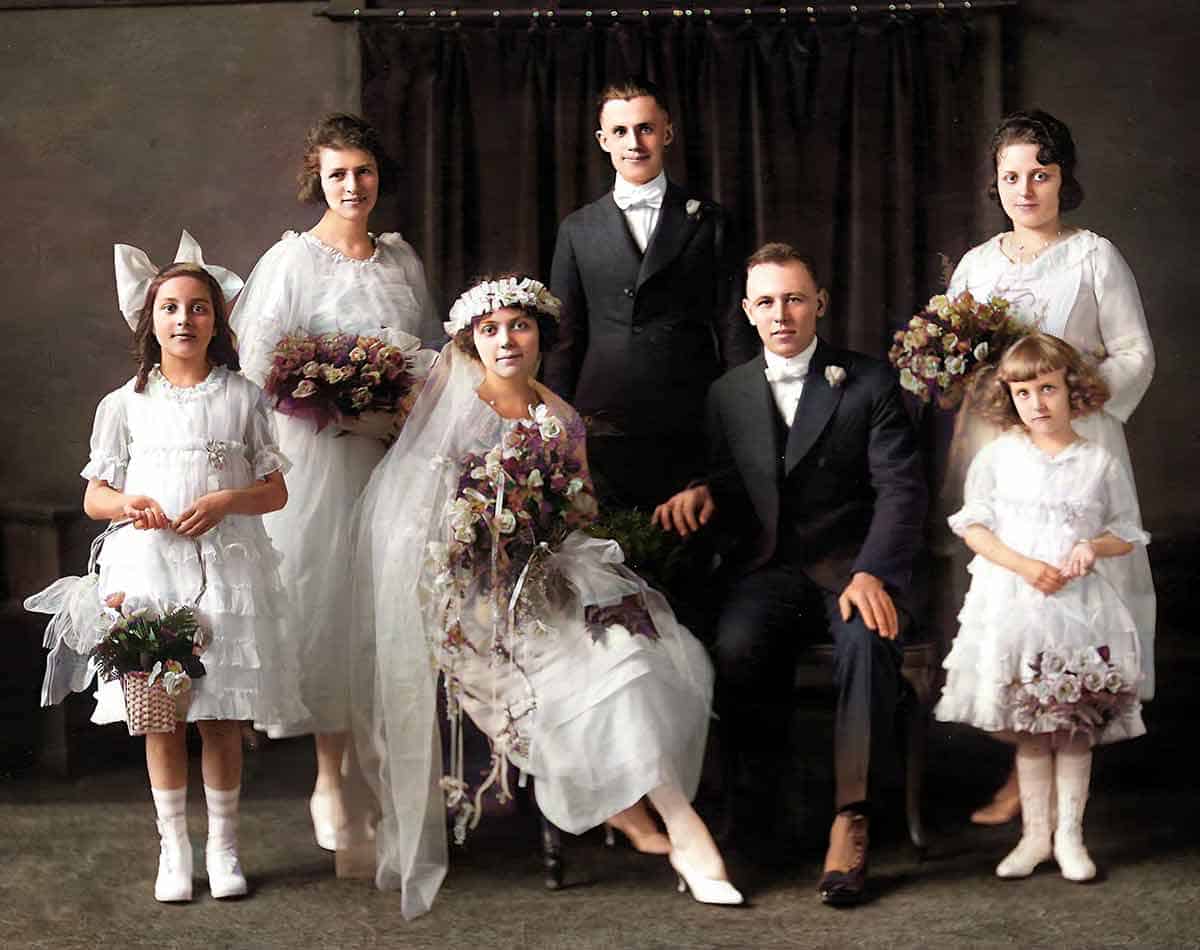
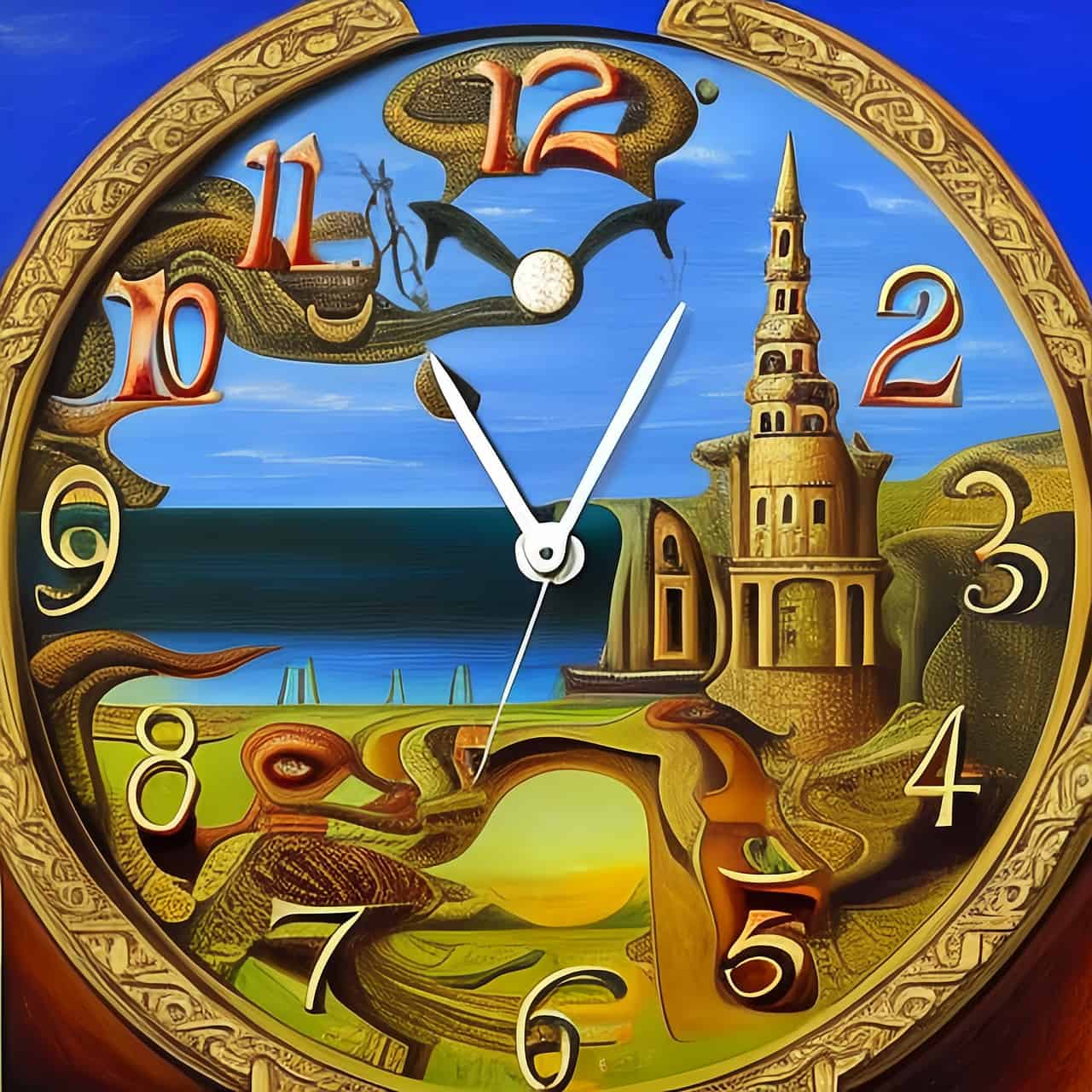
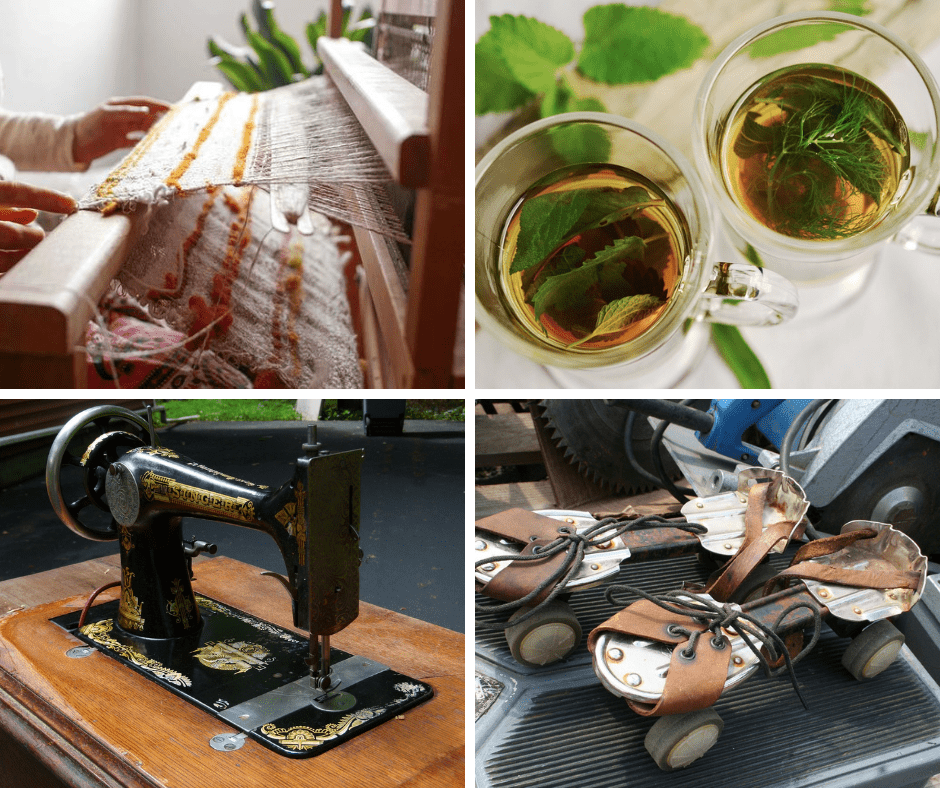



Blue Techker I just like the helpful information you provide in your articles